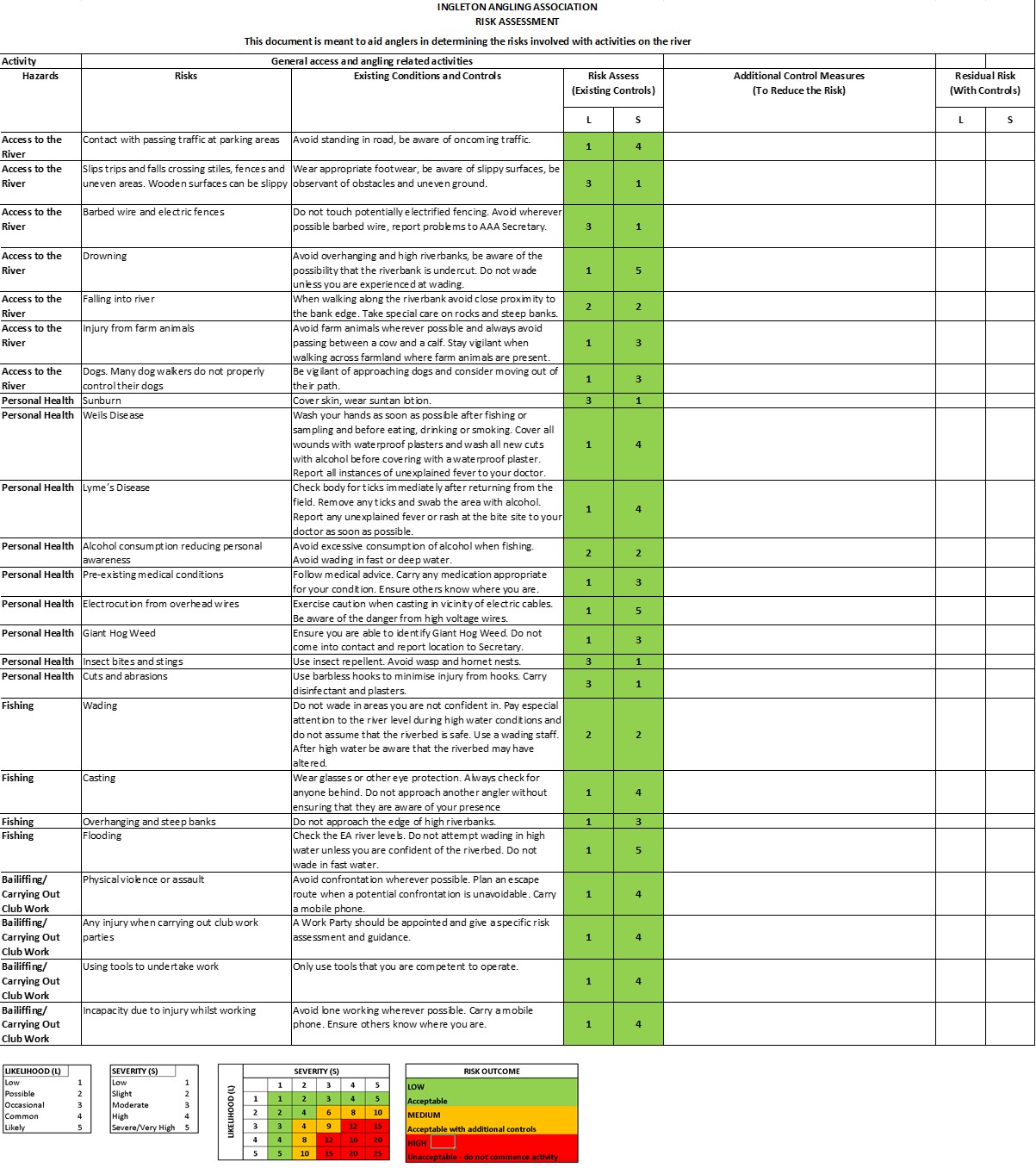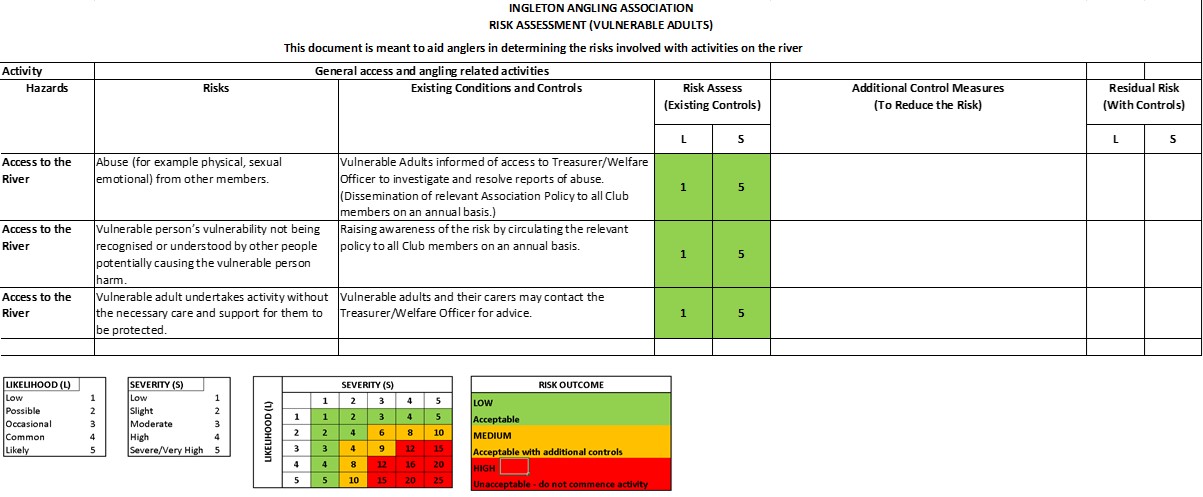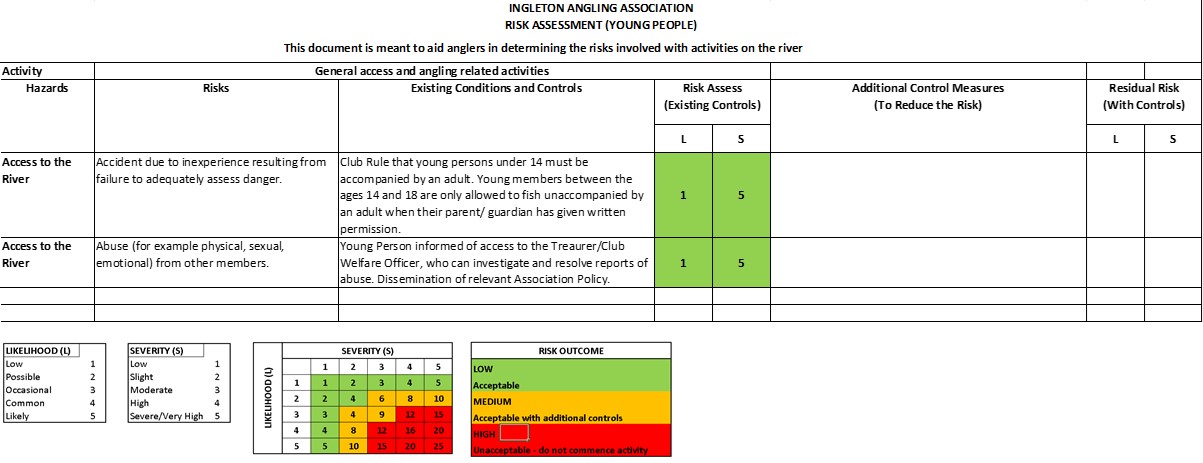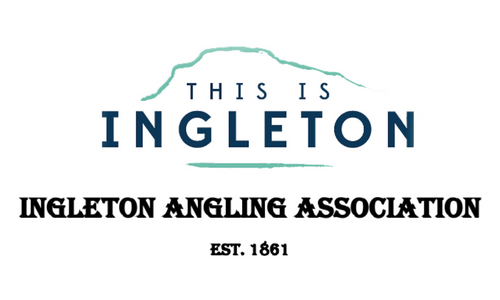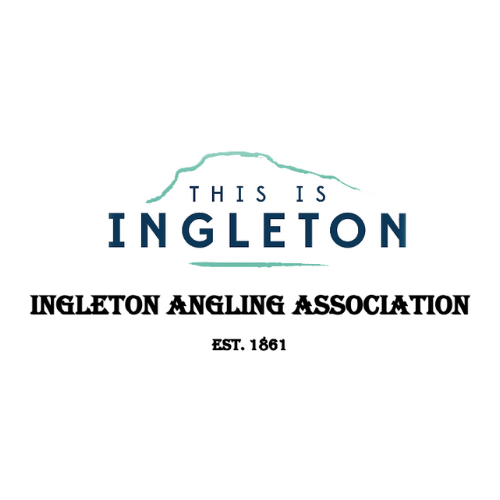Rules of the Association
The Constitution is currently under review and members are asked to send any comments or suggest improvements to the Secretary for discussion at the next AGM
Anglers must be either a fully paid member or be in possession of a valid permit and hold a valid Environment Agency rod licence before commencing to fish. These documents must be produced when requested by a Bailiff, Landowner or Ingleton Angling Association official; failure to do so may result in prosecution.
Anglers must respect the environment, remove litter, and not damage riverbanks, fences, and other property.
Vehicles must be parked sensibly respecting local access requirements and waters approached by designated access routes.
No dogs, camping, barbeques or fires are allowed anywhere on the Association’s waters.
Fishing is by artificial fly only, barbless hooks. No ground baiting, maggots, or illegal fishing methods. Accompanied children (under 12) may float fish using natural baits.
All fish must be returned to the river alive, the use of keepnets is prohibited. Anglers should carry an appropriate size of landing net.
Brown Trout season: 15 March – 30 September
Sea Trout season: 15 March – 30 September
Salmon season: 15 March – 31 October
The Origins of Ingleton Angling Association
Established 1859
The inaugural meeting, on 30 April 1859, was chaired by The Rev. Richard Denny, already Ingleton’s vicar for the previous 15 years and exactly halfway through his lengthy tenure. The Rev. Denny was also the village’s JP and very autocratic – not a man to cross as he often took advantage of his dual role.
For students of lngleton’s history, 1859 was a significant year for another reason, and the timing of the club’s formation is directly linked to this other event. Although the railway line to Clapham and Leeds had opened in 1849, work on the viaduct and new extension which would link up to the west coast began in 1859, and the village was fast filling up with navvies and labourers. So, although the inaugural meeting proposed that the Association was formed “so that steps might be taken to protect the river Greta and its tributaries from illegal fishing”, as John Bentley writes in “The History of Ingleton” (2008). The real reason may have been to control fishing in the rivers and to stop local man from poaching.
The following season, in 1860, an Ingleton AA meeting at the National School, appointed the first river ”watcher”. James Thistlethwaite would receive £5 for his trouble and there were indeed quite a number of locals brought in front of the magistrates for “poaching” over the next few years. James was temporarily sacked as ”watcher” in 1869 for being “caught with others fishing on a Sunday”! – A dreadful crime in those days, but when else could an ordinary working man fish?
By 1870 the Secretary was another local character – Robert Richardson Metcalfe Balderston. Robert was probably to blame for our river names being switched. Up until Robert’s “Ingleton Bygone and Present” (1888), the Doe was to the west from Kingsdale and the Twiss came down from Chapel-le-Dale. All the modern writers agree over this too: Alfred Wainwright, David Johnson, John Bentley. Unfortunately, the Ordnance Survey based their map on Robert Balderston’s jumbled one and hence all the confusion.
Now, everyone uses the Ordnance Survey as the definitive source of the names unless you are a local angler; when you can choose which version you like best.
Ingleton Angling Association
Constitution (17 January,1967)
The Constitution is currently under review and members are asked to send any comments or suggest improvements to the Secretary for discussion at the next AGM
Object; To encourage the art of angling and preservation of fish. To take such waters as may be agreed upon by the Committee and to prevent all illegal methods of taking fish from its waters.
Administration: The administration of the Association, management, control of the affairs and property of the Association, shall be conducted by a Committee, elected annually by the Members of the Association, which shall consist of a Chairman, Secretary, Treasurer and not more than 8 Members on the Committee.
The Chairman, Secretary and Treasurer to receive an Honorarium annually to consist of a free Season Permit.
The Committee to meet at least 6 times a year and 5 members shall form a quorum.
The Annual General Meeting shall be held no later than the second week in February, for the purpose of electing a Chairman, Secretary, Treasurer, Committee and Accountant, the passing of the Accounts and to deal with any other business that may arise.
The Secretary and Treasurer shall have no power to vote at any such meeting (General or Committee) but are allowed to propose items at all such meetings (General and Committee).
The Chairman having no such power to propose at any meeting (General or Committee) but has a casting vote at all such meetings (General or Committee). Any vacancy casual or otherwise in the Committee shall be filled by the Committee co-opting any Member of the Association.
Membership: Membership shall be as follows:
Adults who reside in the United Kingdom (England, Wales, Scotland, Northern Ireland) who have purchased a Season Permit from the Ingleton Angling Association. All Subscriptions of present Members become renewable on the 15th day of March.
Members of the Committee must be subscribers by the first Committee Meeting following the General Meeting.
Current Subscriptions will run from the 15th Day of March to the 14th Day of March the following Year. The Committee retain the power to refuse entry or expel any persons it considers to be ‘undesirable’.
The Secretary and ‘Nominated Outlets’ shall issue Day, Weekly and Members Season Permits, these ‘Nominated Outlets’ shall receive 10% in commission on their annual permit sales; the Secretary to have no such commission.
Adult Membership, Adult Season Permits, aged 16 to 66 yoa, Adult Senior Citizen; Concessionary Adult Season Permit, Aged 66 to 120 yoa. Junior Member Aged 12-16 yoa.
Junior Members may attend the General Meeting but are not permitted to propose Rule or Constitutional changes or vote on Rule or Constitutional changes.
Accounts: The Association shall cause true and proper accounts to be kept, showing in detail all receipts and expenditure of the Association and the whole of its credits, properties and liabilities, at least once a year. The Accounts of the Associations shall be checked by a qualified Chartered Accountant.
Amendments: Any proposal at the General meeting, which effects the existing Constitution or Rules of the Association, must be sent in writing to the Secretary, at least 28 days before the General Meeting to allow at least 14 days for publication before the General meeting. Any such proposal to be adopted must be voted through by two thirds majority of the members present and entitled to vote at the General meeting (Only Senior Members, those over 16 at the time of the General Meeting are entitled to vote).
Risk Assessment
